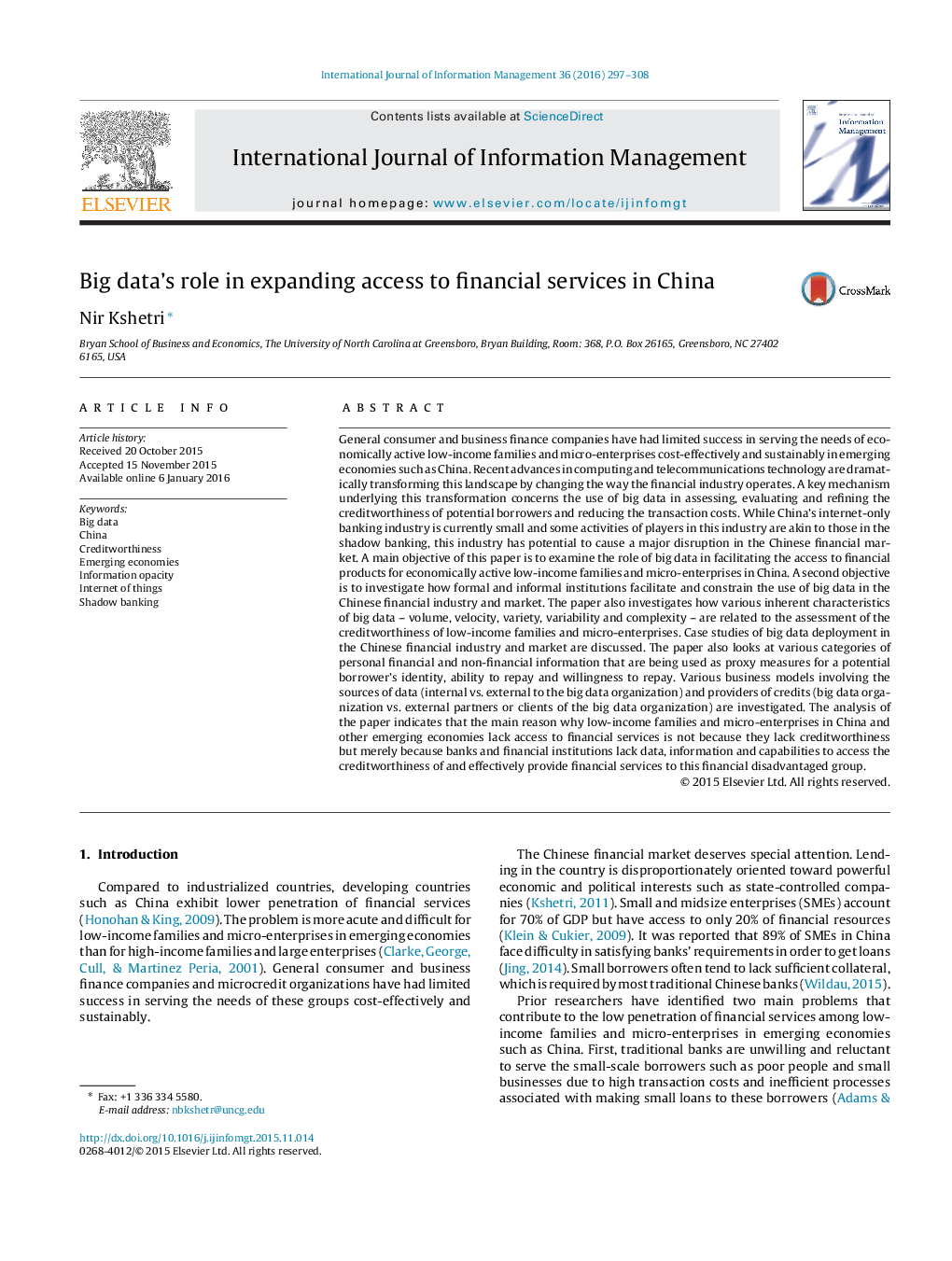| Article ID | Journal | Published Year | Pages | File Type |
|---|---|---|---|---|
| 1025504 | International Journal of Information Management | 2016 | 12 Pages |
•While China’s internet-only banking industry is currently small, it has potential to cause a major disruption in the Chinese financial market.•Various categories of personal financial and non-financial information are being used as proxy measures for a potential borrower’s identity, ability to repay and willingness to repay.•The main reason why low-income families and micro-enterprises in China lack access to financial services may not be because they lack creditworthiness but merely because banks and financial institutions lack data, information and capabilities to access the creditworthiness of and effectively provide financial services to this financial disadvantaged group.
General consumer and business finance companies have had limited success in serving the needs of economically active low-income families and micro-enterprises cost-effectively and sustainably in emerging economies such as China. Recent advances in computing and telecommunications technology are dramatically transforming this landscape by changing the way the financial industry operates. A key mechanism underlying this transformation concerns the use of big data in assessing, evaluating and refining the creditworthiness of potential borrowers and reducing the transaction costs. While China’s internet-only banking industry is currently small and some activities of players in this industry are akin to those in the shadow banking, this industry has potential to cause a major disruption in the Chinese financial market. A main objective of this paper is to examine the role of big data in facilitating the access to financial products for economically active low-income families and micro-enterprises in China. A second objective is to investigate how formal and informal institutions facilitate and constrain the use of big data in the Chinese financial industry and market. The paper also investigates how various inherent characteristics of big data – volume, velocity, variety, variability and complexity – are related to the assessment of the creditworthiness of low-income families and micro-enterprises. Case studies of big data deployment in the Chinese financial industry and market are discussed. The paper also looks at various categories of personal financial and non-financial information that are being used as proxy measures for a potential borrower’s identity, ability to repay and willingness to repay. Various business models involving the sources of data (internal vs. external to the big data organization) and providers of credits (big data organization vs. external partners or clients of the big data organization) are investigated. The analysis of the paper indicates that the main reason why low-income families and micro-enterprises in China and other emerging economies lack access to financial services is not because they lack creditworthiness but merely because banks and financial institutions lack data, information and capabilities to access the creditworthiness of and effectively provide financial services to this financial disadvantaged group.
